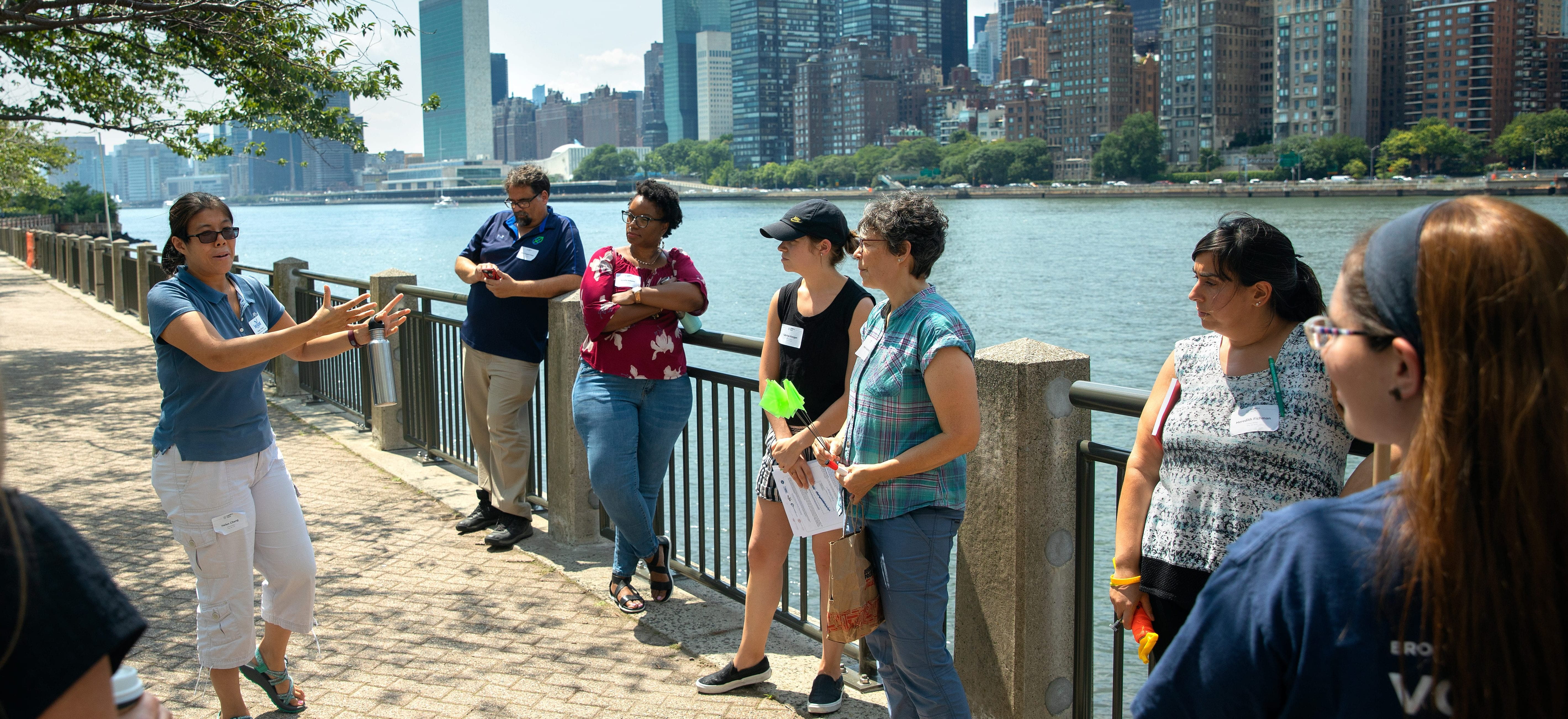
A statewide program of Cornell University’s College of Agriculture and Life Sciences, the Cornell Climate Stewards Program is designed to provide world-class training to volunteers who want to work on climate change at the local level to help increase their community’s resilience to climate change and reduce their community’s impacts on the climate.
Mission & Vision
The Mission of the Cornell Climate Stewards Program provides cutting-edge and research-based training of volunteers who can support their communities to become “Climate Smart Communities” by planning and implementing climate change mitigation, adaptation, and education projects at the local level. The Vision of the Cornell Climate Stewards Program builds stakeholder capacity and works toward a future where communities are resilient in the face of a rapidly changing climate and have reduced their impacts on the climate system.
Cornell Climate Stewards Training
The Cornell Climate Stewards Program is a 12-week training program for adults who want to work with their communities on a local climate action project. Once completing the twelve weeks of training, volunteers agree to contribute 40 hours over 1-year to complete a local climate community project to help their municipality become a “Climate Smart Community” in New York State. The Cornell Climate Stewards Program provides New York residents with the tools and network to help increase adaptation at a local level and increase mitigation of greenhouse gases (GHGs).
Learn more specifics about the Curriculum and Volunteer Component.
Program Goals
Goals of the new Climate Stewards Training program include:
- Increasing access to the most up-to-date land-grant university research on the science of climate change, impacts, adaptation, and mitigation, through a Cornell Cooperative Extension course for the adults in New York;
- Establishing a network of volunteers committed to local climate action, who are empowered to develop and implement climate change stewardship and education projects in their community;
- Expanding the reach of Cornell University and Cornell Cooperative Extension to facilitate climate action at the local level; and
- Providing support to municipalities in New York and the State to achieve their GHG emissions reduction and adaptation goals set out under the Climate Leadership and Community Protection Act (CLCPA).